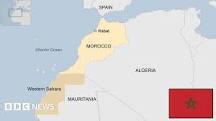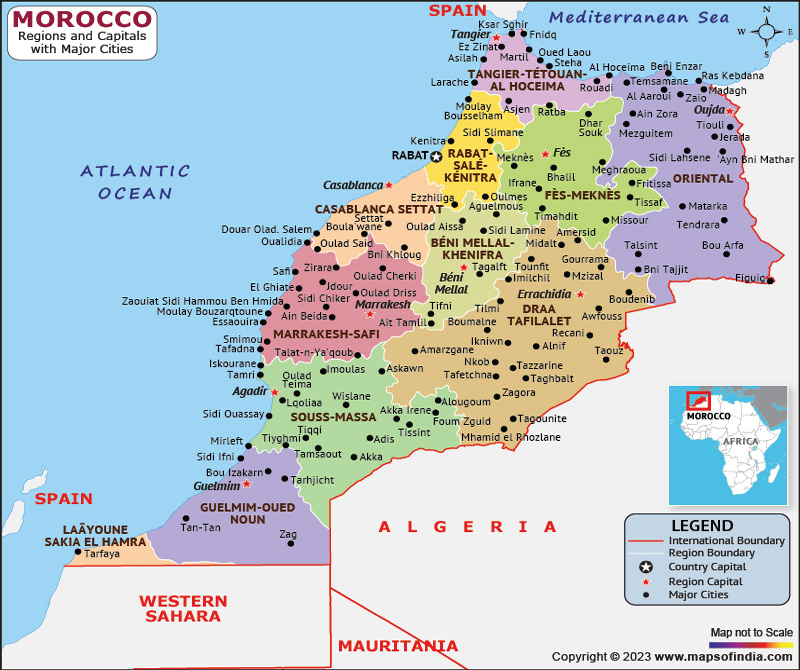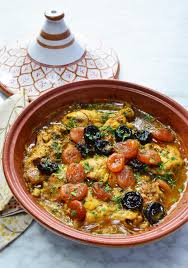The Rich History of Morocco
Nestled in the northwest corner of Africa, Morocco boasts a history as diverse and vibrant as its landscapes. From ancient Berber tribes to Arab conquerors and European colonizers, the country’s past is a tapestry woven with conquests, trade, and cultural exchanges.
Ancient Civilizations
The history of Morocco dates back thousands of years to when it was inhabited by Berber tribes. These indigenous peoples left behind traces of their rich culture in the form of rock carvings and ancient settlements. The Phoenicians and Carthaginians also established trading posts along the Moroccan coast.
Arab Conquest
In the 7th century, Arab armies swept across North Africa, bringing Islam to the region and establishing dynasties that would shape Morocco’s identity. The Umayyad and Abbasid Caliphates left their mark on Moroccan architecture, language, and religion.
Islamic Golden Age
During the Islamic Golden Age, Morocco flourished as a centre of learning and culture. The Almoravid and Almohad dynasties built magnificent cities like Marrakech and Fez, known for their stunning architecture and bustling souks.
European Influence
In the 15th century, European powers began vying for control of Moroccan territory. Portugal, Spain, and later France established colonies along the coast, leading to centuries of conflict and diplomacy. In 1956, Morocco regained its independence from France.
Modern-Day Morocco
Today, Morocco is a vibrant country that blends its ancient traditions with modern influences. From bustling medinas to tranquil oases, visitors can experience a rich tapestry of culture, cuisine, and hospitality that reflects the country’s diverse history.
Exploring Morocco’s Rich Tapestry: A Journey Through Its Diverse and Influential History
- Rich and diverse history spanning thousands of years
- Influences from Berber, Arab, and European civilizations
- Home to ancient cities like Marrakech and Fez with stunning architecture
- Strategic location as a crossroads of trade and culture
- Islamic Golden Age saw flourishing of arts, science, and architecture
- Historic sites such as Roman ruins at Volubilis showcase Morocco’s past
- Independence from colonial rule in 1956 marked a turning point in Moroccan history
- Modern-day Morocco offers a blend of traditional customs and contemporary influences
Exploring the Challenges in Morocco’s Historical Landscape: Colonial Legacy, Neighbouring Conflicts, and More
- Colonial legacy
- Conflict with neighbouring countries
- Social inequality
- Political instability
- Human rights concerns
- Economic challenges
- Cultural tensions
Rich and diverse history spanning thousands of years
Morocco’s allure lies in its rich and diverse history that stretches back thousands of years, encompassing a tapestry of civilisations, conquests, and cultural exchanges. From the ancient Berber tribes to the Arab conquerors and European colonisers, Morocco’s past is a treasure trove of stories that have shaped its identity. Each chapter in its history adds layers to the country’s unique character, making it a fascinating destination for those seeking to delve into the depths of time and explore the myriad influences that have left their mark on this enchanting land.
Influences from Berber, Arab, and European civilizations
The history of Morocco is a captivating tapestry woven with influences from Berber, Arab, and European civilizations. The Berber tribes, indigenous to the region, contributed their unique customs and traditions to the cultural mosaic of Morocco. The Arab conquest in the 7th century brought Islam and a rich architectural heritage that still defines the country’s landscape today. European powers such as Portugal, Spain, and France left their mark through trade, colonialism, and architecture, adding yet another layer of complexity to Morocco’s diverse history. These diverse influences have shaped Morocco into a country where ancient traditions coexist harmoniously with modern influences, creating a truly unique and dynamic cultural landscape.
Home to ancient cities like Marrakech and Fez with stunning architecture
Morocco’s rich history is showcased in its ancient cities such as Marrakech and Fez, where visitors are transported back in time through their stunning architecture. Marrakech’s vibrant souks, intricate tile work, and iconic landmarks like the Koutoubia Mosque offer a glimpse into the city’s illustrious past. Meanwhile, Fez’s well-preserved medina, with its winding alleys and historic monuments, serves as a living testament to Morocco’s architectural heritage. These cities not only captivate with their beauty but also provide a tangible link to the country’s fascinating history and cultural legacy.
Strategic location as a crossroads of trade and culture
Situated at the crossroads of trade and culture, Morocco’s strategic location has played a pivotal role in shaping its rich history. Serving as a gateway between Africa, Europe, and the Middle East, Morocco has been a hub for the exchange of goods, ideas, and traditions for centuries. The country’s position along major trade routes has not only facilitated commerce but also fostered a dynamic cultural melting pot where diverse influences converge. This unique geographical advantage has allowed Morocco to thrive as a vibrant centre of cross-cultural interaction and innovation throughout its storied past.
Islamic Golden Age saw flourishing of arts, science, and architecture
During the Islamic Golden Age in Morocco, a period of enlightenment and cultural advancement, arts, science, and architecture thrived like never before. The Almoravid and Almohad dynasties fostered a rich intellectual environment that led to remarkable achievements in fields such as mathematics, astronomy, medicine, and philosophy. Magnificent architectural wonders like the mosques and palaces of Marrakech and Fez stood as testaments to the creativity and innovation of this golden era. This flourishing of arts, science, and architecture not only enriched Morocco’s cultural heritage but also left a lasting legacy that continues to inspire admiration and awe to this day.
Historic sites such as Roman ruins at Volubilis showcase Morocco’s past
Historic sites like the Roman ruins at Volubilis stand as poignant reminders of Morocco’s rich and diverse history. These ancient remnants not only offer a glimpse into the country’s past as a crossroads of civilisations but also highlight the enduring legacy of Roman influence in Morocco. The well-preserved architecture and intricate mosaics at Volubilis serve as a testament to the cultural exchange and prosperity that once thrived in this region, inviting visitors to step back in time and immerse themselves in the stories etched within these historic stones.
Independence from colonial rule in 1956 marked a turning point in Moroccan history
The independence from colonial rule in 1956 marked a significant turning point in Moroccan history, symbolising the end of foreign domination and the beginning of a new era of self-governance and national identity. This milestone event not only restored Morocco’s sovereignty but also paved the way for social, political, and economic reforms that shaped the country’s modern trajectory. The struggle for independence instilled a sense of pride and unity among Moroccans, fostering a renewed spirit of resilience and determination to chart their own course towards progress and development.
Modern-day Morocco offers a blend of traditional customs and contemporary influences
In modern-day Morocco, visitors are greeted with a captivating blend of traditional customs and contemporary influences that shape the country’s vibrant cultural landscape. From bustling souks where ancient craftsmanship thrives to modern art galleries showcasing innovative creations, Morocco seamlessly weaves together its rich heritage with a forward-thinking approach. This harmonious fusion of old and new creates a unique experience for travellers seeking to immerse themselves in a dynamic society that honours its past while embracing the opportunities of the present.
Colonial legacy
Morocco’s colonial legacy is a significant con in its history, marked by the enduring impacts of European colonialism on the country’s society and economy. The period of European colonization, particularly by France, Spain, and Portugal, has left deep-rooted influences that continue to shape Morocco’s social structure and economic development. The legacy of colonialism has resulted in cultural shifts, economic disparities, and political complexities that still resonate in modern-day Morocco, highlighting the long-lasting consequences of foreign domination on a nation striving to preserve its identity and forge its own path forward.
Conflict with neighbouring countries
One significant challenge in Morocco’s history has been its conflicts and territorial disputes with neighbouring countries. These disputes have often strained diplomatic relations and led to periods of tension and uncertainty in the region. Morocco’s efforts to resolve these conflicts have shaped its foreign policy and influenced its position in the international community. Despite these challenges, Morocco continues to work towards peaceful resolutions and maintaining stability in the region.
Social inequality
Social inequality is a persistent challenge in Morocco’s history, mirroring the global struggle faced by many nations. The country grapples with significant disparities in wealth distribution and unequal access to resources among its population. This issue of social inequality underscores the need for ongoing efforts to address economic disparities and create a more equitable society where all individuals have the opportunity to thrive and prosper.
Political instability
One significant con in Morocco’s country history is the recurring issue of political instability. Over the centuries, Morocco has faced periods of political unrest and uncertainty, impacting the stability of its governance and society. From internal conflicts to external pressures, these challenges have at times hindered the country’s progress and development, creating a sense of unpredictability within its political landscape. Despite efforts to address these issues, the spectre of political instability continues to cast a shadow on Morocco’s historical narrative.
Human rights concerns
Human rights concerns have cast a shadow over Morocco’s history, with the country coming under scrutiny for alleged violations such as limitations on freedom of speech and assembly. Critics have raised issues regarding the restrictions placed on these fundamental rights, highlighting the need for greater transparency and respect for individual liberties within the nation. Addressing these human rights challenges is crucial for Morocco to uphold its commitment to democracy and ensure a more inclusive society for all its citizens.
Economic challenges
Despite making significant progress in various aspects, Morocco still faces economic challenges that pose hurdles to its development. High rates of unemployment and widespread poverty remain pressing issues that the country grapples with. Despite efforts to improve the economy and create job opportunities, addressing these persistent challenges requires sustained commitment and innovative solutions to ensure a brighter future for all Moroccans.
Cultural tensions
One significant challenge in Morocco’s history is the presence of cultural tensions stemming from its diverse heritage. The country’s amalgamation of Berber, Arab, and European influences can occasionally result in friction between various ethnic groups or regions. These cultural tensions, while reflective of Morocco’s rich tapestry of traditions, require delicate navigation and understanding to foster harmony and unity among its people.




